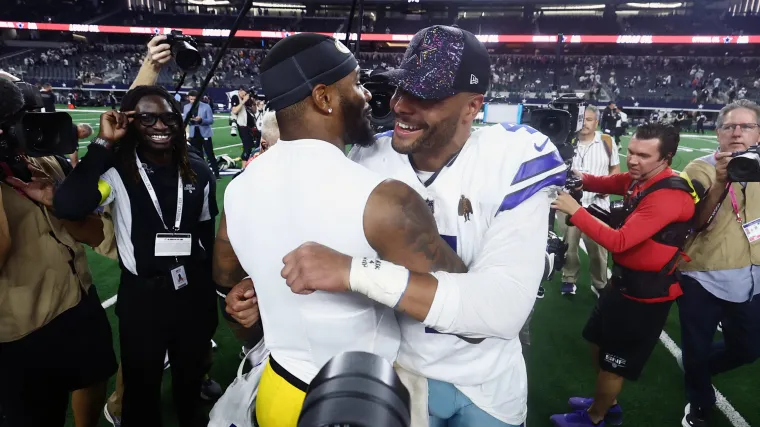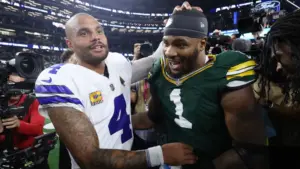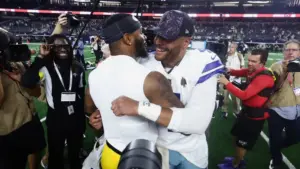The Dallas Cowboys and Green Bay Packers delivered one of the wildest games of the 2025 NFL season Sunday night, but the ending left plenty of fans unsatisfied. After four quarters of back-and-forth action and a tense overtime period, the scoreboard at AT&T Stadium froze at 40–40 — a tie that sparked renewed calls to reexamine the league’s overtime system.
The night had everything: highlight-reel touchdowns, a rare blocked PAT returned for two points, and clutch plays in crunch time. Dak Prescott threw for 319 yards and three scores while also running one in himself. George Pickens torched Green Bay’s secondary with 134 yards and two touchdowns. Running back Javonte Williams added balance with 85 rushing yards and a score.
On the other sideline, Jordan Love matched Prescott blow-for-blow, finishing with 337 yards and three touchdowns. Romeo Doubs tied his career high with three TD catches, while Josh Jacobs piled up 157 scrimmage yards and two rushing scores. Former Cowboy Micah Parsons, now wearing green and gold, added a sack in his Dallas homecoming.
The Packers struck first, building a 13–0 lead, but Dallas clawed back behind Prescott’s precision. A late touchdown to Pickens gave the Cowboys the edge, only for Brandon McManus to drill a 53-yard field goal as time expired in regulation. In overtime, both teams traded short field goals before the 10-minute extra frame ran out, locking in the 40–40 tie — a score never before seen in NFL history.
And that’s where the debate comes in. Under current NFL regular-season overtime rules, both teams are guaranteed a possession, but the extra period is capped at 10 minutes. If no winner emerges, the game ends in a tie. For many, that feels incomplete — especially after a heavyweight clash like the Cowboys-Packers game.
College football’s system offers a stark contrast: each team starts from the opponent’s 25-yard line in alternating possessions until one side emerges victorious. There are no ties, and the equal starting point eliminates the advantages of a coin flip. Supporters argue this format would prevent anticlimactic finishes like Sunday night’s, delivering a decisive winner every time.
Analysts, however, believe the NFL’s model better preserves the game’s strategic depth. Field position, punting, and clock management remain crucial, while the time limit reduces wear and tear on players and limits scheduling chaos for broadcasters. Still, with ties continuing to frustrate fans and teams alike, the calls for change are growing louder. For fans who invested four hours into a thriller, a tie felt like the wrong ending — and the NFL may need to rethink whether its overtime rules truly serve the game.






